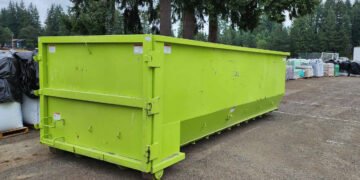Your house is yours forever. But the roof over your head is a different story.
You want to know, how long does a roof last? As we said already, it won’t be overhead for the rest of your years in your house. But depending on the roofing materials used, it may be around for longer than you think.
Here’s everything you need to know about the lifespan of a roof.
Asphalt Roof: 15 to 30 Years
The majority of American homes have asphalt shingles overhead, and it makes sense why. They’re often the cheapest, and they’re ingeniously designed. The asphalt part is what sticks to your roof, and it heats up in the sun — the sticky layer makes the roof waterproof.
On top of that, asphalt roofs last a long time and often come with a quarter-century of warranty. Most will stand up for 15 to 30 years. Check out retailers like saltlakeroofing.com if you’re interested in an asphalt roof.
Wooden Shingle Roof: Up to 30 Years
Your wooden roof will last for up to 30 years, but that’s not without a lot of work on your part. This natural material requires quite a bit of upkeep.
You’ll also have to have your roof inspected each year to make sure you don’t have any split shingles, which could let in water. If you replace broken shingles over time, though, your roof should last for three decades — and come with a warranty for that long of a stretch.
Clay Tiles: Up to 50 Years
A clay roof is nearly ten times the price of an asphalt roof, but you get what you pay for. This material — a favorite in hot climates — lasts for 50 years or longer, on average. And you don’t have to do anything to get your roof to last that long, either.
Manufacturers should arm you with a warranty for at least 30 years, although some will swing for a half-decade. A rare offer could arm you with a lifetime guarantee on your clay roof. That’s how durable they are!
Metal Roofing: Up to 70 years
Speaking of getting what you pay for, a high-end metal roof can last just as long, if not longer, than a clay one. But keep in mind that there are all types of metal roofing materials, and thinner ones — that are usually cheaper, too — tend to last up to 25 years.
Meanwhile, the thicker, higher-end metal roofing costs more, but it can last for 70 years or longer. It’s a great investment if you live in a particularly snowy area. Metal roofs are strong against snow; in fact, snow slides right off metal shingles.
So, How Long Does a Roof Last?
In the end, there’s no one answer to your question. How long does a roof last? It depends on the material, but it could be for the lifespan of your home.
Need more home decor and DIY advice? Check back with us for more.






























































